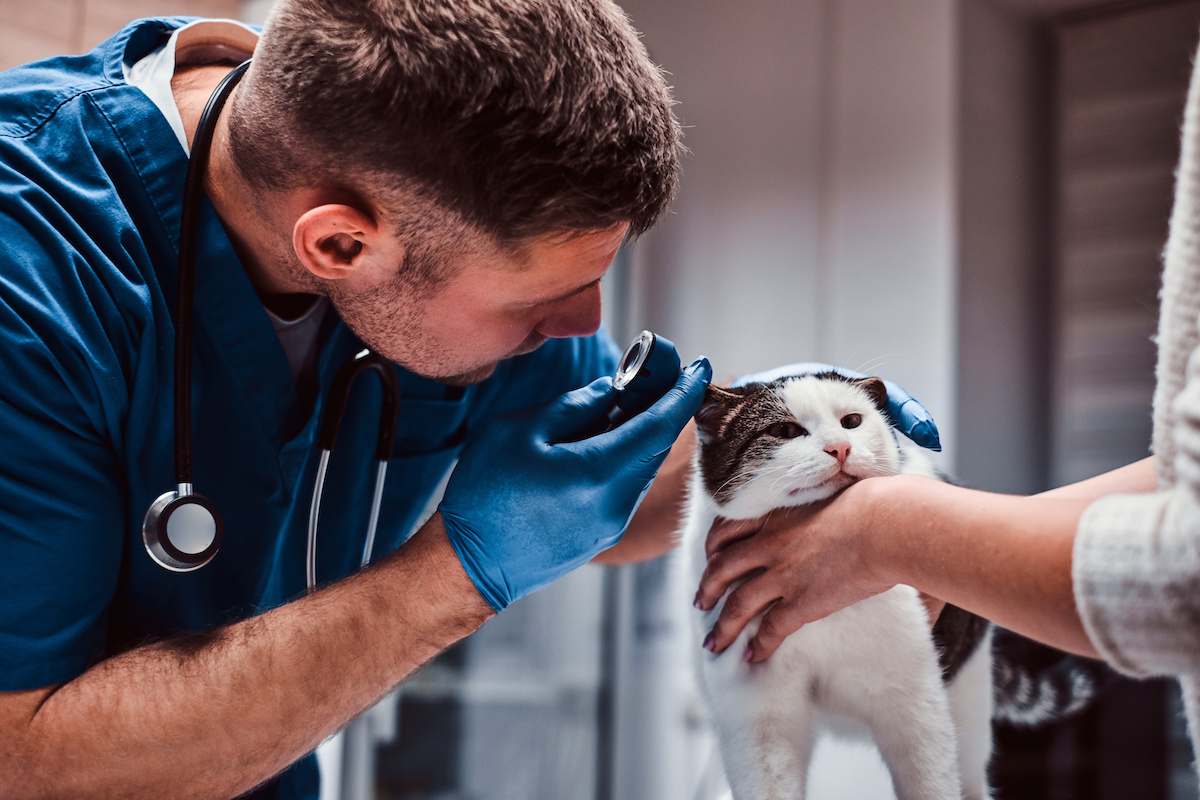The Importance of Routine Pet Vaccinations for Keeping Your Furry Good Friend Healthy
The Importance of Routine Pet Vaccinations for Keeping Your Furry Good Friend Healthy
Blog Article
Inoculation Standards From Your Relied On Vet
Inoculation standards supplied by your trusted veterinarian play a critical duty in guarding your pet's health and well-being. Furthermore, attending to common misunderstandings bordering vaccines can further enhance pet dog proprietors' self-confidence in these precautionary procedures.

Relevance of Vaccinations
Vaccinations play a crucial duty in securing pets against a range of preventable conditions. By boosting the body immune system to acknowledge and battle specific virus, vaccinations considerably reduce the occurrence of transmittable conditions that can impact a pet's health and wellness and longevity. Not just do inoculations safeguard specific animals, but they also add to herd resistance, therefore reducing the total frequency of diseases in the pet dog population.
Prompt vaccinations assist to reduce the spread of diseases such as rabies, parvovirus, and distemper, which can have severe repercussions for both pets and human beings. In addition, inoculations are frequently a need for boarding facilities, grooming services, and pet dog parks, making them important for those that desire to mingle their pet dogs.

Core Injections for Pets
While the specific vaccination requirements of family pets can vary based upon individual aspects, core injections are globally recommended to safeguard versus the most typical and serious conditions (Veterinarian Enterprise). Core injections are those deemed important for all pets, regardless of their way of living or geographical place, as they safeguard against potentially fatal and very infectious diseases
For pets, the core vaccines include those for canine distemper, parvovirus, adenovirus (hepatitis), and rabies. Adenovirus can result in liver disease, while rabies is a zoonotic illness that positions a threat to both pet dogs and human beings.
In pet cats, core injections encompass feline panleukopenia, feline calicivirus, feline herpesvirus (rhinotracheitis), and rabies. Feline panleukopenia is an extremely contagious viral condition that affects the immune system and intestinal tracts. Calicivirus and herpesvirus are significant factors to upper breathing infections in cats, while rabies stays a vital worry for public health.
Talk to your vet to guarantee your pet dogs receive their core vaccinations on schedule.
Non-Core Vaccines Explained
Non-core vaccinations are customized to attend to particular risks related to a family pet's environment, way of living, and exposure to certain diseases. Unlike core vaccinations, which are widely recommended for all pet dogs, non-core vaccinations are thought about based on specific conditions. These vaccines are specifically vital for pets that might run into distinct virus due to their geographical location, travel behaviors, or tasks.
Instances of non-core injections consist of those for Bordetella bronchiseptica, which is connected to kennel coughing, and Lyme disease, brought on by ticks. Family pets that often interact with other animals, such as those in boarding centers, dog parks, or brushing environments, may take advantage of Bordetella vaccination. If you live in an area where Lyme disease is common, vaccinating versus this condition can be a sensible selection for outdoor-loving canines.
Various other non-core injections might include those for leptospirosis, canine flu, and feline leukemia, depending upon the details risk variables present. It is important to have a complete discussion with your vet about your pet dog's way of life and the possible demand for these vaccinations, guaranteeing a customized vaccination approach that ideal protects your hairy friend.
Inoculation Schedule Summary

As family pets develop, it is important to abide by the recommended booster vaccinations. Emergency Vet. For adult animals, core injections are usually given every one to 3 years, depending on the specific injection and local regulations. Non-core vaccinations might be recommended based on way of life elements and regional illness prevalence, demanding a tailored technique
Routine vet check-ups are important for updating vaccination routines. Your vet can offer assistance on one of the most ideal immunizations for your family pet, factoring in age, health and wellness status, and environmental threats. By staying proactive and informed, animal owners can ensure their fuzzy buddies receive efficient and prompt inoculations, thereby guarding their wellness and wellness throughout their lives.
Usual Misconceptions Concerning Vaccinations
Mistaken beliefs concerning family pet vaccinations can lead to confusion and hesitation among pet proprietors pertaining to the booster shot process. One prevalent misconception is that vaccines are unneeded for interior pets. While it's true that indoor animals encounter reduced risks, they are not entirely unsusceptible to illness, as microorganisms can be introduced via different means, consisting of human apparel why not try these out and various other animals.
An additional misconception is that vaccinations can create the illness they intend to avoid. In truth, the majority of vaccines have inactivated or undermined pathogens, which can not create condition in healthy pets. Some animal proprietors likewise believe that their pet dogs must not be immunized if they are currently healthy; nonetheless, vaccinations are a positive action that helps prevent the onset of disease.
Furthermore, numerous family pet proprietors are afraid that injections will bring about long-term health complications. While adverse effects can occur, they are short-term and normally mild. The advantages of inoculation-- shielding family pets from possibly deadly illness-- much exceed the risks. Comprehending these usual misconceptions is crucial for responsible family pet possession and guaranteeing the health and wellness of your furry friends. Constantly consult your veterinarian for accurate info customized to your pet dog's specific requirements.
Final Thought
In summary, adherence to inoculation guidelines is essential for ensuring the navigate to this site wellness and longevity of pet dogs. Dispelling usual misconceptions surrounding vaccinations further reinforces the importance of educated decision-making in pet treatment.
Not only do vaccinations safeguard private pets, but they also add to herd immunity, consequently reducing the general frequency of conditions in the animal populace.
Misconceptions regarding pet dog vaccinations can lead to complication and reluctance among family pet owners regarding the immunization procedure. While it's true that indoor pet company website dogs face lower threats, they are not entirely immune to illness, as pathogens can be introduced with different methods, including human apparel and various other pets.
Some animal owners additionally believe that their pet dogs should not be vaccinated if they are already healthy; however, inoculations are a positive measure that assists stop the start of ailment.
The advantages of vaccination-- securing animals from potentially deadly illness-- much surpass the risks.
Report this page